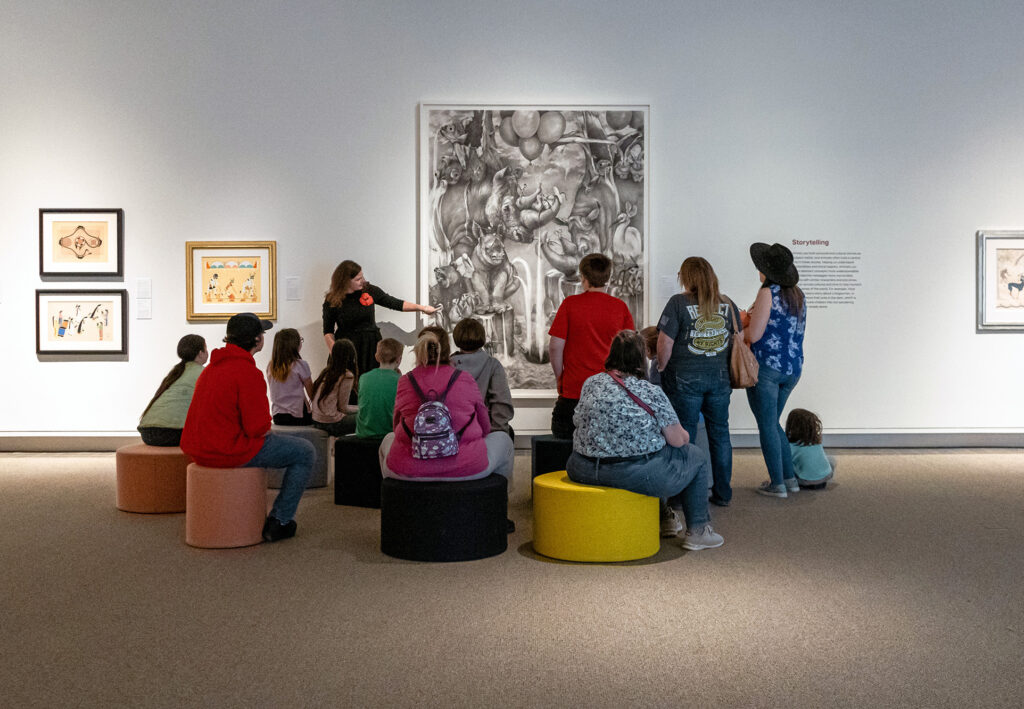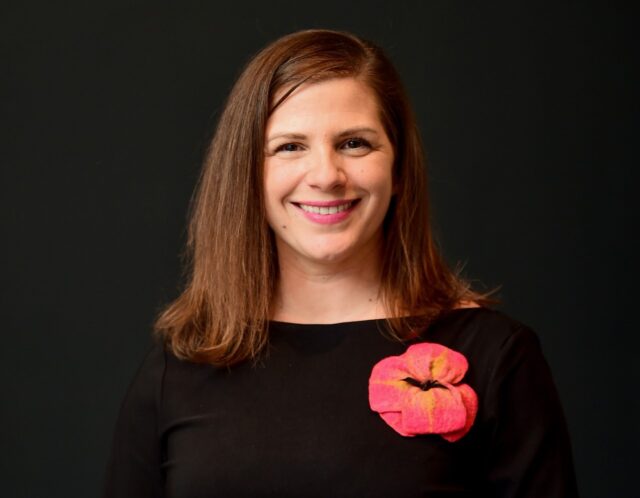This week, gallery intern Sarah Willoughby ’25 had the opportunity to interview Davidson College Alum Jessica Ruhle ’03.
Jessica received a BA in Art History at Davidson College in 2003. After Davidson, Jessica went to graduate school at George Washington University, earning her MAT in Museum Education. In 2014, Jessica became the Director of Education at the Nasher Museum of Art on Duke’s campus. In 2022, Jessica took over the role of Executive Director of the Yellowstone Art Museum in Billings, Montana. In this interview, Sarah and Jessica discuss everything from her experience at Davidson College, to her career path, to the intersection between science and art. Here are a few highlights.
Learn a little more about Jessica’s Davidson Experience and what led her to pursue an art history degree.
Sarah Willoughby: “It seems like your whole experience has been very Davidson-esk. The liberal arts style of everything. I wonder if there was a class when you were at Davidson that, maybe wasn’t art history related, but that helped you do these interdisciplinary roles in the future?”
Sarah Willoughby: “When I was doing some research on you before our interview, I was looking on your LinkedIn. It said that you were really committed to accessibility within your museums. I took a whole class on this- called Politics of Museums and Problems of Display, and we kind of talked about a lot about accessibility so it is really interesting to me. I was curious, what did the Nasher do that was specifically connected to accessibility and how did you achieve it?”
Jessica Ruhle: “Yeah- you know I think one of the most important things for any museum to do is to think about accessibility in a really holistic way. So, it can be really common for a museum to have an accessibility checklist that is much more focused on physical accessibility- which is great and something that should be kind of the ground level expectation for everybody. But I think, to push against some of the stereotypes of museums and the perceived barriers (about not being for everybody and not being a super welcoming space), I think institutions need to go beyond the kind of basics and think more broadly about accessibility in terms of people’s financial barriers to museums, thinking about accessibility in terms of neurodivergence and people who are on the autism spectrum or experiencing memory loss.
Thinking about how experiences we are creating within a physical space can be accessible to a wide multitude of people. More than ever, and you know this, folks have so many choices for their leisure time and their financial resources, and museums are going to suffer in terms of attendance and being perceived as relevant and necessary in a community if they are not being mindful of the whole spectrum of guests.
I just think it is really critical, quite frankly, for the longevity of museums as an institution.”

Sarah Willoughby: “When you went to the Yellowstone Art Museum, that was coming out of the pandemic. Did that also cause a reworking of accessibility but also equity? You know, as it was coming out of the Black Lives Matter Movement of 2020 and COVID, that was a huge impact on any institution. How did you address all of these factors coming into a new role?”
Jessica Ruhle: “You know, I think just a lot of cultural organizations have had to refigure and reimagine how we engage audiences in this moment. Just like you were talking about, coming out of the pandemic, we are thinking about people’s physical safety and their comfort level with public spaces. And then, thinking about issues around equity and, you know, we can’t be telling their stories. And so, thinking about how everything from exhibitions to public programs to publications and events, tells a broader, more representative story of our communities and history and art.
I will say, too, here in Billings, it has been really interesting… There is an extent to which the museum is having to reintroduce itself to the community because people got out of their habits during the pandemic. You know, events that had been happening annually haven’t happened for the last two years. People just got out of some of those routines they ay have had. But it is also a good moment, for us to be reimagining and thinking differently about how museums operate in a community space.”
Sarah Willoughby: “In closing, do you have any advice for current Davidson students interested in museum work, grad school, or the art world after Davidson?”
Special thanks to Jessica Ruhle for taking the time to speak to the Davidson College Van/Every Smith Galleries. To those interested, you can reach out to Jessica through Davidson Connect.

